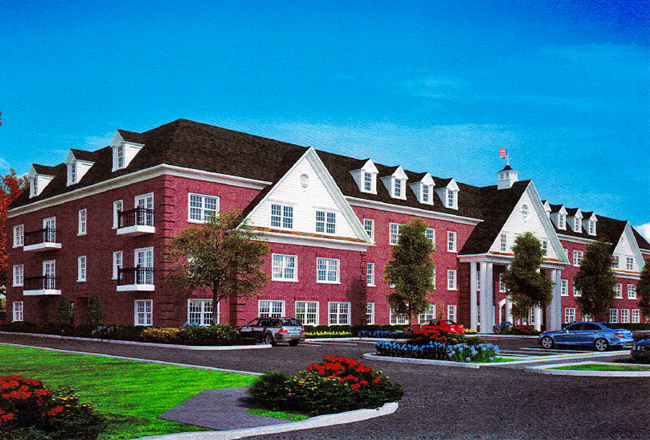A judge has ruled that the town of North Castle acted legally when it rejected a request by Armonk developer Michael Fareri to transfer an agreement to build affordable housing.
Fareri contended that building six affordable housing units at the Lumberyard property, 162 Bedford Road, was impractical and would result in a $1.8 million loss. He proposed building the apartments at 470 Main St. instead.
But acting state Supreme Court Justice Anne E. Minihan ruled on Sept. 7 that the decision to transfer the units “is effectively left to the discretion of the town board.”
“I”™m really disappointed with the judge”™s decision,” Fareri said in a telephone conversation. “At the end of the day, the town won the battle but potentially lost the war.”

In 2015, the town planning board granted Fareri site plan approval to build luxury apartments at the Lumberyard. Six of the 36 units had to be offered as affordable housing.
In March, Fareri asked the town to approve transferring the affordable housing agreement to the proposed development on Main Street.
He maintains that is not practical to mix “high end” market-rate apartments with below-market-rate apartments.
Market-rate apartments cost more to build, he said, and offer more expensive features and amenities. The Lumberyard design would require tenants to pay monthly common area costs of about $500, while the Main Street tenants would pay about $100.
If not allowed to transfer the obligation, he states in the lawsuit filed on May 3, “the developments will simply not occur.”
He claims that the board rejected his request because he had spoken out against Supervisor Michael Schiliro.
Schiliro had called him a liar at a recent meeting, he said.
Fareri also had demanded that Schiliro recuse himself from the decision because he lives close to the Main Street project and therefore would be adversely affected by affordable housing. The supervisor declined to do so.
Fareri petitioned the court to compel North Castle to approve a transfer of the apartments and to approve development of both projects “in all other ways.”
Such a remedy is extraordinary, Minihan ruled. The court may compel a government to perform a legal duty only where the petitioner demonstrates that the government is duty-bound to perform the action.
In this case, she said, the law leaves the decision to transfer the apartments to the discretion of the town board.
She also rejected Fareri”™s contention that Schiliro was biased, in light of neutral comments he made at the March meeting.
Now the community will not get what is in its best interest, Fareri said: luxury housing and affordable housing at the right locations.



















